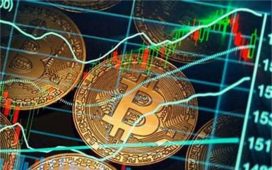Insider trading is a contentious issue in the world of finance. It refers to the practice of trading stocks based on material non-public information about a company. While some argue that insider trading can provide strategic insight into market trends, others view it as an unethical advantage that undermines the fairness and integrity of the financial system. In this article, we will explore both perspectives and examine the ethical implications surrounding this practice.
The Argument for Insider Trading
Proponents of insider trading argue that it can be a valuable source of information for investors. They believe that insiders, such as executives and board members, possess unique knowledge about a company’s future prospects. By allowing them to trade based on this information, markets become more efficient as prices reflect the underlying fundamentals of the business. From this perspective, insider trading can be seen as a form of “smart money” investing, where those with inside knowledge are rewarded for their expertise.
Moreover, proponents contend that prohibiting insider trading infringes upon individual rights and hampers market efficiency. They argue that if insiders are prevented from trading, they may be less motivated to work hard and contribute to the success of the company. Additionally, by allowing insiders to profit from their information, it provides an incentive for employees to disclose potential wrongdoings within the organization and helps maintain transparency.
The Case Against Insider Trading
Opponents of insider trading argue that it creates an unfair advantage and undermines the principles of equal opportunity. They claim that when insiders trade based on non-public information, it deprives other investors of the ability to compete on an even playing field. This leads to a distortion of market prices and erodes trust in the financial system.
Furthermore, critics highlight the potential for abuse and fraudulent activities associated with insider trading. They argue that it opens the door for insiders to manipulate stock prices for personal gain, at the expense of ordinary shareholders. This can result in significant losses and damage to investor confidence. In order to protect the integrity of markets, opponents advocate for strict regulations and severe penalties for those found guilty of engaging in insider trading.
The Ethical Dilemma
The debate on insider trading raises profound ethical questions. On one hand, proponents argue that it contributes to market efficiency and rewards individuals with specialized knowledge. They believe that as long as the practice is regulated and transparent, it can be deemed ethical. On the other hand, opponents stress the importance of fairness, equal opportunity, and trust in maintaining the integrity of financial markets. For them, any form of insider trading is inherently unethical and should be prohibited.
Ultimately, the question of whether insider trading is an unethical advantage or strategic insight depends on one’s perspective. While proponents emphasize the potential benefits, opponents highlight the risks and injustices associated with this practice. Striking a balance between allowing informed trading and protecting market integrity remains a challenge for regulators and policymakers worldwide.














